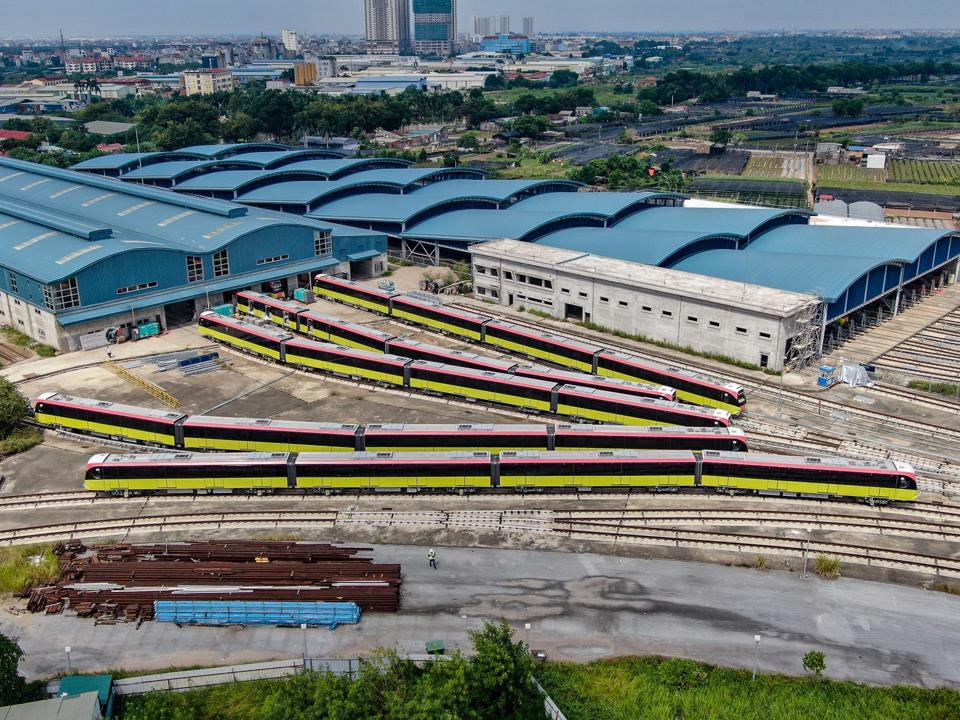Nhon – Hanoi Station metro line ready for test run in December
The elevated section of the Nhon-Hanoi Station metro line will officially undergo a test run in early December.
The Board of Directors of Hanoi Urban Railways (MRB) on November 23 announced the testing of the elevated section of the 8.5-kilometer Nhon-Hanoi station line.
| The photo shows the Nhon Depot, the terminal of the Nhon-Hanoi Station urban railway project. Photo: The Hanoi Times |
The test, which will begin on December 5, is divided into two phases. The first, which will last between five days and six weeks, will test the efficiency of the line's reliability, availability, and maintainability (RAM).
According to the project management board, four to eight trains will be tested daily from 9 am to 7 pm on five consecutive days.
If RAM efficiency results are below 98%, the project management board will continue the test until the indicators meet the expected levels.
The second phase begins once the RAM efficiency is accepted. In the second phase, the metro line will go through five scenarios: a total power outage on the line, partial power interruption on the line, a secondary power source outage, detection of a fire in the station, and emergency vehicle operation.
Systra, the French mobility engineering and consulting group, requested that at least 22 Hanoi Urban Railway Management Board employees join the test, including a minimum of 22 drivers, five operational command center officers, and two managers.
The Nhon – Hanoi station metro project, with financial backing from the French Government, the French Development Agency (AFD), and the European Investment Bank (EIB), has a total length of 12.5 kilometers, running through eight elevated and four underground stations.
The project was initiated in September 2010. Due to issues in land clearance and financial capacity, the project's total investment has doubled to VND34 trillion (US$1.45 billion).
By the end of October 2022, the project was 75% complete, and the elevated lines were almost finished. By the end of August 2022, the total state budget disbursement for the project amounted to VND17 trillion.
The related parties expect the elevated portions to enter commercial operation in 2023. The 4-kilometer subway lines could be operational by the end of 2027.












